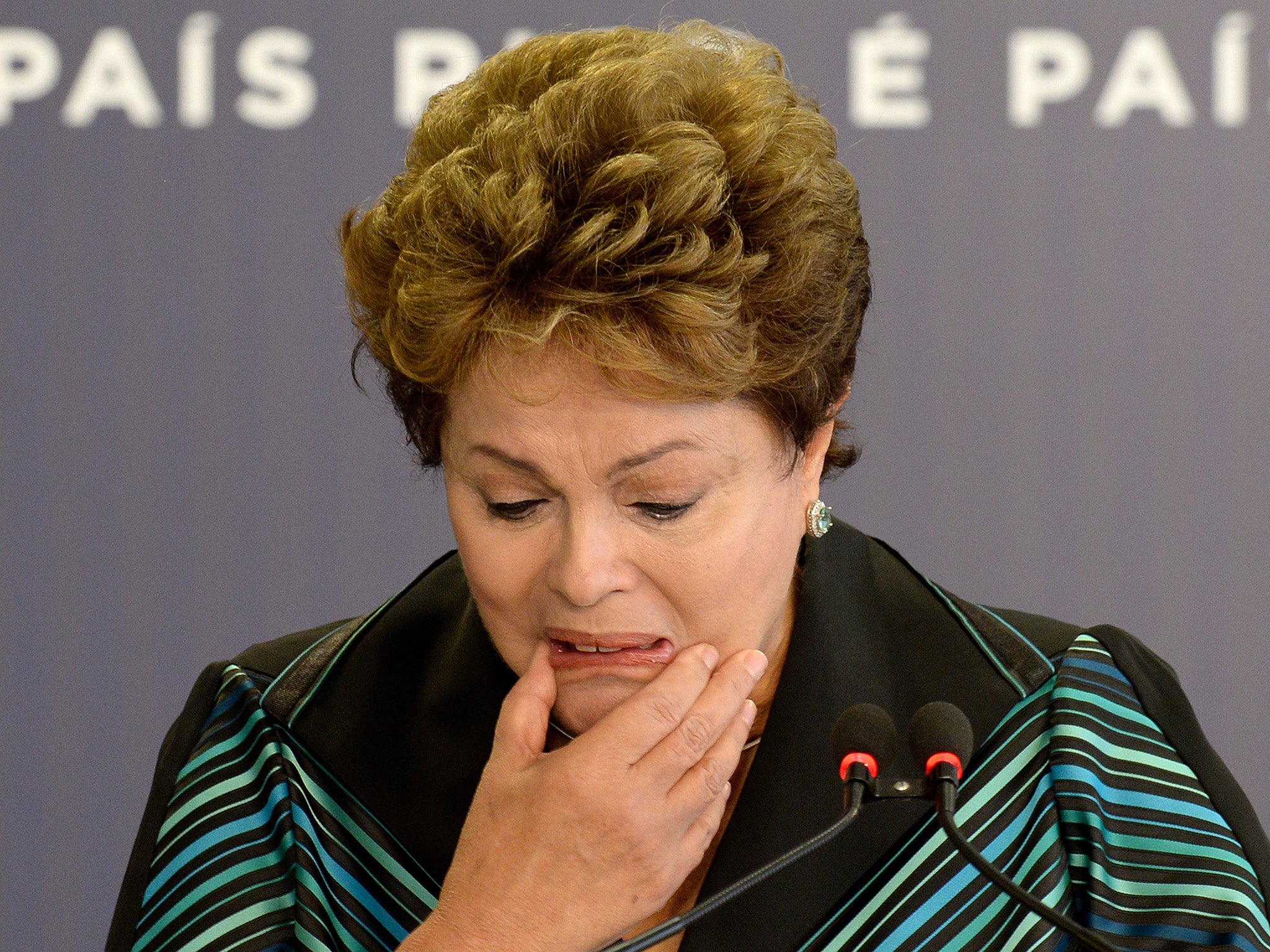Brazil president in tears as commission reveals torture by military dictatorship
Dilma Rousseff was a victim herself of the abuses of Brazil's military between 1964 and 1985

Dilma Rousseff broke down in tears following the delivery of a report into the killings, disappearances and tortures committed by government agents during Brazil's years under military dictatorship.
Rousseff was imprisoned and tortured between 1970 and 1972 for being part of various groups fighting against Brazil's dictatorship that lasted between 1964 and 1985.
On Wednesday, the country's National Truth Commission delivered a report that detailed the actions of government agents and called on those responsible to face prosecution. The 2,000-page document was handed to an emotional Rousseff who shed tears as she gave a speech on the report
"I said that Brazil deserves the truth. The new generations deserve the truth. And most of all, those who deserve the truth are those who lost family members, friends, companions and continue to suffer," said Rousseff.
The document is the country's most comprehensive attempt yet to terms with the human rights abuses committed under the country's military regime. It is noticeable that the report comes out in the same week that a Senate report detailed the excesses of the CIA in the wake of the 9/11 attacks in the US.
The seven-member commission was formed by Congress and sworn in by Rousseff in 2011.
While the report calls for those who committed brutalities during the dictatorship, the commission has no prosecutorial powers and 1979 amnesty law passed by the military stops those who may be guilty of such grimes from being tried or punished.
The report calls for the repeal of the amnesty.
Fatima Oliveira Setubal, who lost a brother during the dictatorship, said: "The delivery of the report is an historic and important step, but we need to keep fighting, we cannot stop if there is no punishment of the crimes, a trial for the torturers, an opening of the files, a clarification of everything and the transformation of the places (that were used as prisons) in memorial of the resistance: memory centres."
Subscribe to Independent Premium to bookmark this article
Want to bookmark your favourite articles and stories to read or reference later? Start your Independent Premium subscription today.

Join our commenting forum
Join thought-provoking conversations, follow other Independent readers and see their replies